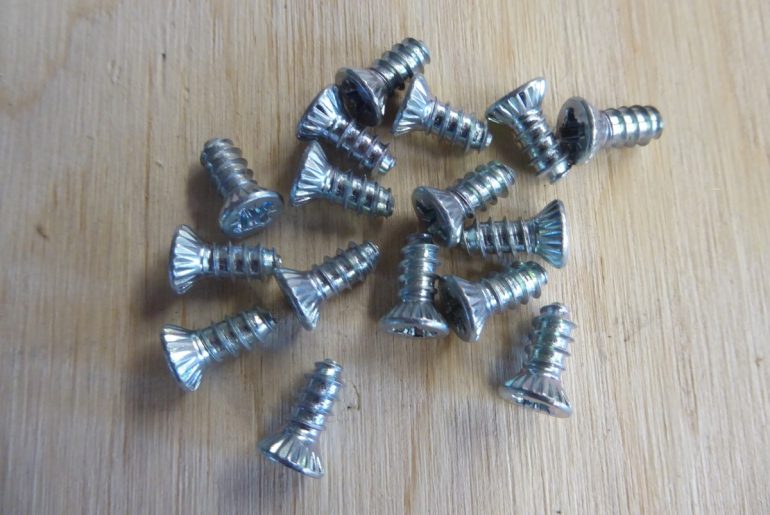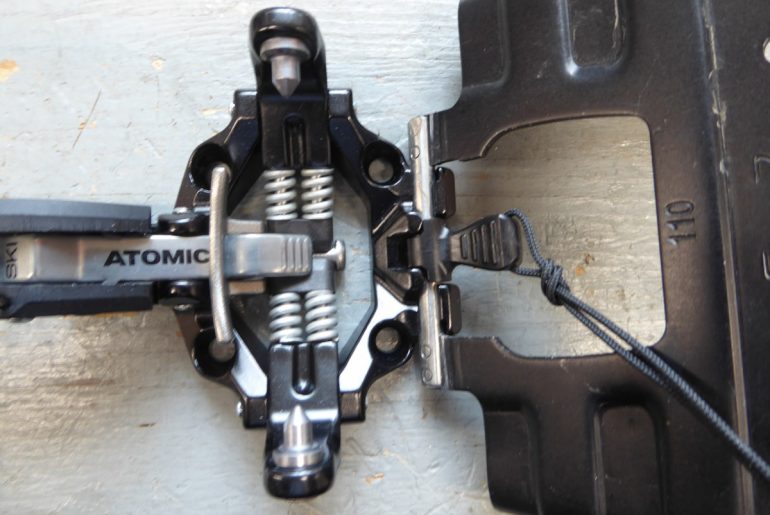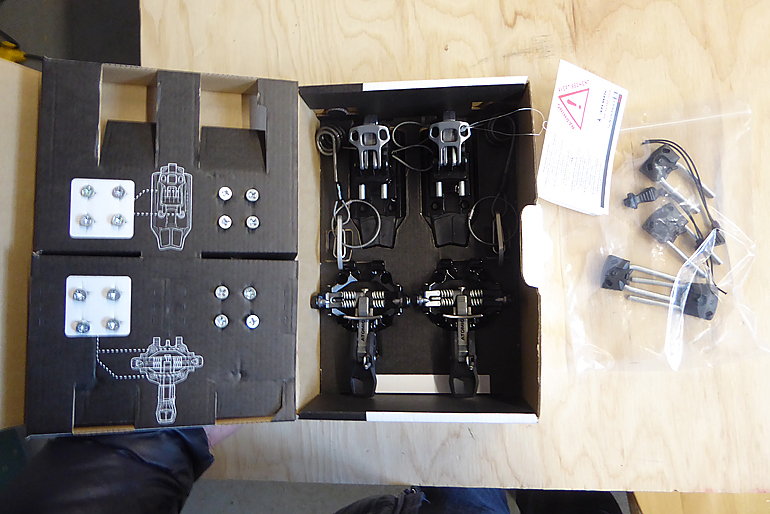
Even the packaging is fine wine.
Could the Atomic/Salomon Backland/MTN be the best tech binding ever made? I’ll leave that conclusion up to you, dear commentators. But consider: It’s easily available, by all accounts one of the most durable, and above all it forgoes the problematic “ski flex compensation spring” that has become all the rage — and curse — among the other binding powers.
In other words, Backland is simple, light, and just works. Along with all that, the current iteration boasts a number of subtle improvements that make a good thing better. Before we begin, note there is no difference in how any versions of this binding ski, so this is not a redundant repeat of our previous reviews. Rather it’s a heads-up to keep us all current.
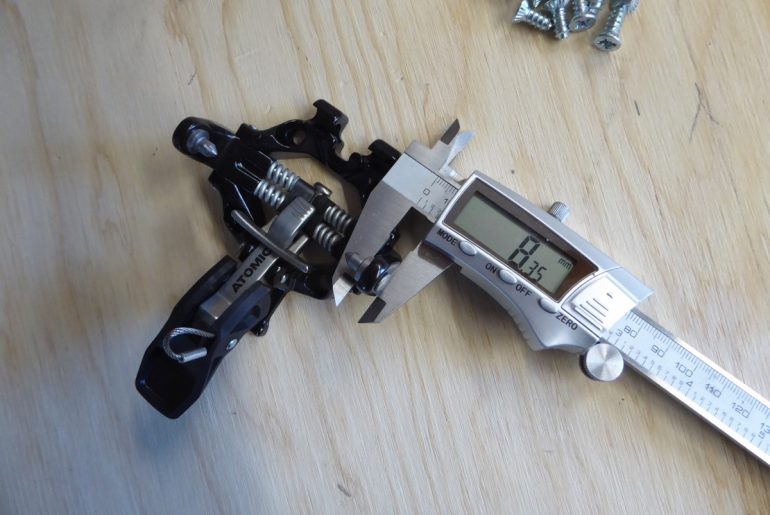
The good stuff. We did see a few of the original Backland with broken wings. The binding is now about a millimeter thicker in this vulnerable zone.

The simple and elegant U-spring design remains intact with no change I could discern. This includes the enigmatic and politically incorrect naming of the middle strength spring with the initial “W,” presumably standing for “Women” as the medium stiff spring is labeled “MEN.” I’m not getting why they’re not at least labeled “Herren” and “D,” or for that matter “Homme” and “F.” May I suggest 1,2,3? Joking aside, you can not fine-tune the Backland release settings beyond what the three springs give you, and you can not adjust upward and side release independently. Fine for Igor, but some of you may want a binding with more refined adjustment capability. More here regarding Backland release value (RV).
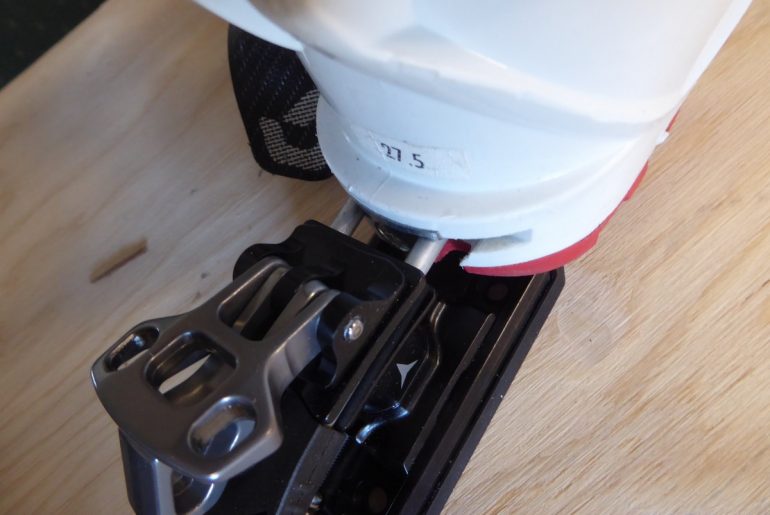
As before, you run the Backland with a 4 millimeter tech gap at the heel. For those of you just now crawling out of your five year snowcave sleeping session, tech gap is the little flash of genius that minimalist U-spring tech bindings use to compensate for ski flex. Note the included leash clips (when you acquire version with no brakes) are 4 mm thick so you can check your tech gap before you shoot the gap.

Mystery clips. The Dynafit type ski crampon is a good design. Simple, just slide it into the slot and go — works the same way with Backland. With one possible glitch: If the crampon hinges up past a certain point it can slide out of the attachment slot and be lost. This is unlikely with your skis on your feet, but could occur while carrying your skis over your shoulder and other such shenanigans. More, during use there is an aluminum on aluminum rubbing friction happening, caused by how the crampon remains centered. If you use ski crampons extensively, this could cause wear and eventual slop or damage. These smart little clips help the crampon remain attached and centered no matter what.
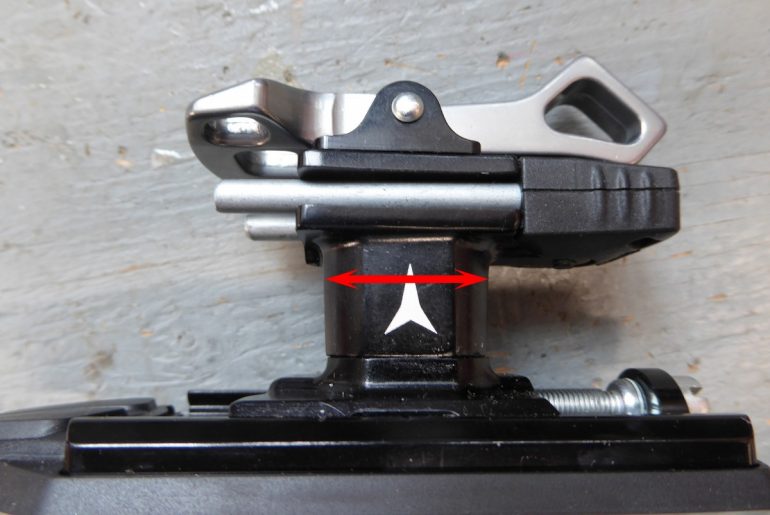
Current binding’s tower is thicker. Strength here is critical when ski flex closes the tech gap and the boot heel impacts the binding. Also regarding the heel tower, Version 1.0 of Backland/MTN had a problem with slop in the heel track, this appears to be handled.

Comparison, early Backland (right) with current (left). While the colors alone might be a way to ID, a more reliable marker is the different appearance of the to wings, indicated by arrows.
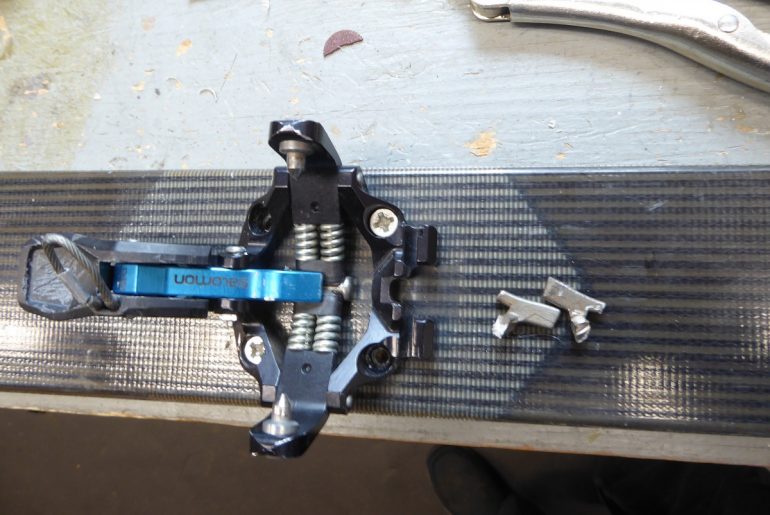
Now for the good stuff. I’d been off coffee for a few days, then had one Starbucks pod this morning. Look what happened. I spent two hours saving five grams. I removed the boot toe click-in assistance bumper, which I’ve found to be nearly useless. I’m anticipating my uphill speed boost to resemble a nitrous oxide retrofit on a Prius. Look out world.
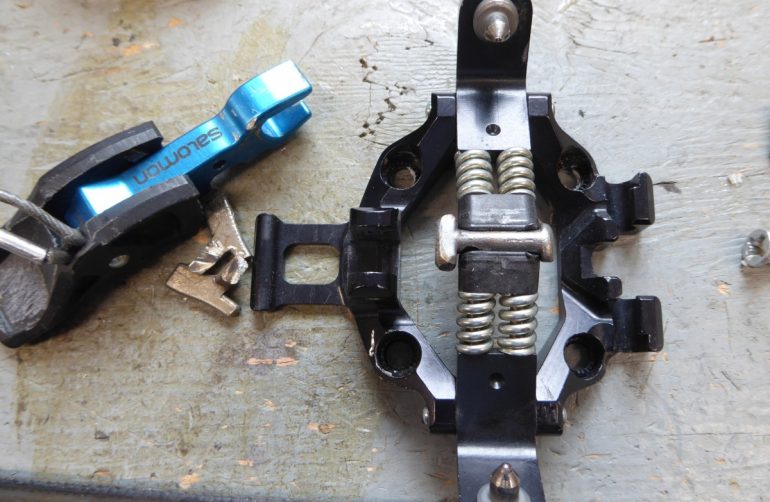
In process. It was a bit of chore. Would this make a good project if you’re sheltering in place? If so, it goes something like this: Remove rivet-pin holding the toe wing opener locking lever. Remove bumper. Grind all but necessary steel from the bumper piece. Re-assemble, using 3 millimeter bolt to replace rivet-pin. Let me know how much faster you storm up the hill.
A few other things: Toe (single) is 3 grams heavier than the original, heels are identical according to my scale. The available ski brake remains the best in the business. Why? It is entirely divorced from the heel unit, and 100% manually operated compared to the often overly complex, failure-prone offerings from other brands, that attempt integration of the brake with the heel unit. (Note the binding version without brake is the Backland Pure.)
Shop for Atomic Backland ski touring binding
WildSnow.com publisher emeritus and founder Lou (Louis Dawson) has a 50+ years career in climbing, backcountry skiing and ski mountaineering. He was the first person in history to ski down all 54 Colorado 14,000-foot peaks, has authored numerous books about about backcountry skiing, and has skied from the summit of Denali in Alaska, North America’s highest mountain.

